Contents
Taxation on capital gains started in 1965 in the UK, with rules changing dynamically over the years. Like it or not, you pay this tax when you sell a taxable property or asset. You are particularly liable to capital gains tax when you are a UK ‘tax resident’ or personally representing the deceased.
HMRC is becoming more rigorous about preventing tax evasion. Strategising your tax liability, however, is not discouraged. In this article, we provide effective means on how to avoid capital gains tax UK. The strategies may not be that simple. We recommend you seek guidance with a tax accountant every time you deal with capital wealth.
Capital Gains Tax Rate 2024/25
Most properties, shares, trust, business assets, and others are treated as chargeable assets in the UK and are taxed. For the 2024/25 tax year, the annual exempt amount is £3,000. Capital gains are currently taxed at the following rates:
- Basic Rate – 18%
- Higher Rate – 24%
- Additional Rate – 28%
There are various ways to calculate the chargeable gains. The most common is working out the difference between how much it was bought and sold. Others, like properties purchased before 1982 or were inherited, are calculated using market value.
When Does Capital Gains Tax Apply?
Usually, capital gains tax arises after selling a property, but it can also occur when you:
- Give away a chargeable asset.
- Transfer a chargeable asset to another person.
- Exchange a chargeable asset for something else.
- Receive reimbursement for the loss or destruction of an asset, such as an insurance payout.
Not every taxable event follows the same rules. UK CGT applies differently according to various factors, mostly the type of asset you sold and the timing of sale. Always consult a tax expert to determine your tax liability accurately.
Find out how to avoid paying capital gains tax on property or other assets below.
1. Use CGT Allowance
Every UK taxpayer is eligible for the capital gain tax allowance. This allows you to earn up to £3,000 free from any tax (for the 2024/25 tax year). If not used, the allowance cannot be carried forward into the next tax year, so be sure to maximise this tax-free amount each year.
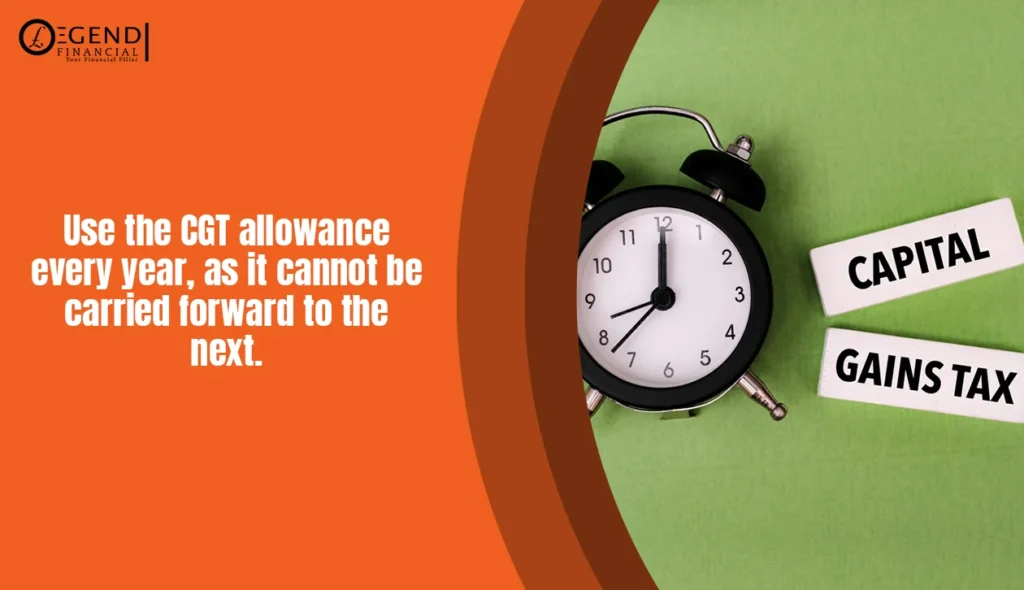
2. Offset Losses Against Gains
Disposing assets at a loss to cut your CGT bill demands a robust and calculated move. Unlike the CGT allowance, you can carry losses forward to balance against taxable gain made in future years. Tax-loss harvesting demands a strategic approach to capital growth.
For instance, you may want to consider selling other assets that suffer a value depreciation, such as meagre-performing investment stocks and shares. The loss made from this disposal can then be used to offset against the CGT bill that comes from the more lucrative disposal.
3. Gift Assets to Your Spouse
Capital gains tax allowance can be combined between married couples or civil partners during inter-spousal transfers, effectively doubling it. As each has a personal exemption of £3,000, spouses can save up to £6,000 in CGT. The transfer must be an unpretentious, absolute gift.
“CGT allowance can be combined between a spouse or civil partner when one gifts assets to another.”
4. Reduce Taxable Income
Since CGT is added on top of income tax, reducing taxable income can lower CGT bill. Reducing taxable income can be done in several ways, such as through salary sacrifice through pension contributions, childcare checks, or transferable marriage allowance.
Read our guide How to Claim Marriage Allowance UK to learn more how this tax relief works.
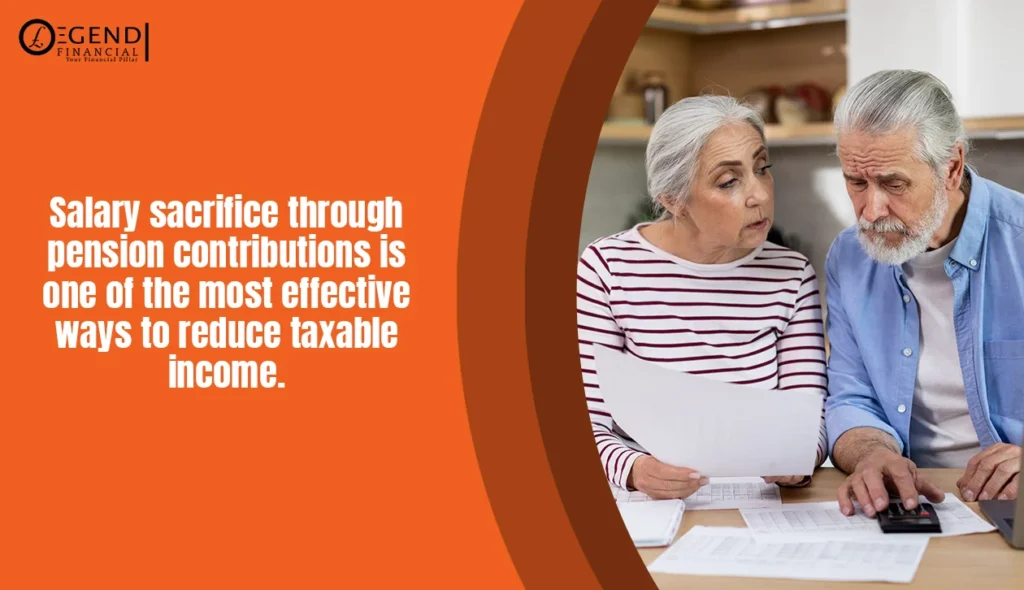
5. Buying and Selling Within the Family
Another tip for how to avoid capital gains tax on home sale is ‘bed and spouse,’ an alternative to ‘bed and breakfasting,’ which was formerly about selling a property only to repurchase it on the same day. Current rules no longer allow this. You must wait 30 days now before you can repurchase the same asset.
This is how ‘bed and spouse’ works—when the property value appreciates, you dispose of it to your spouse or civil partner, they transfer it back to you, and you can offset any losses against your gain. When you sell it in the future, the gain will be calculated from the repurchase price instead of the original price.
“By bed and spouse rule, the valuable possessions can be kept within the family to minimise CGT for future disposal.”
6. Contribute to a Pension
Contributing to a pension is another way to reduce your taxable income, especially if you are a higher or an additional rate taxpayer. Basic rate taxpayers can also benefit as their taxable gains are reduced, as gains are added on top of your income. Particularly, you get the following tax relief:
- 20% tax relief if you are a higher rate taxpayer (originally taxed at 40%)
- 25% tax relief if you are an additional rate taxpayer ((originally taxed at 45%)
Learn more about it in our guide how tax relief for your pension contribution works.
7. Make Charity Donations
Since the annual pension contribution amount is capped at either the equal of your annual salary or £40,000, whichever is lower, you may want to consider an alternative−making charitable contributions. Contributing to charities, either through cash or assets, can help you lessen both your CGT and inheritance tax.
Giving to a charity remains one of the top ways to avoid capital gains tax on property 2024/25. When you gift a property, land, or an asset to a qualifying charity, the organisation may ask you to sell it on their behalf. You can then claim tax relief on the charity donation.
“Donating to a charity is one of the ways how to avoid capital gains tax on land sale as you can claim tax relief on your donation.”
Useful read: Gift Aid Tax Relief: What You Need to Know
8. Spread Gains Over Tax Years
This is a tax deduction strategy used by people with volatile incomes to avoid capital gains tax on real estate, decreasing their total marginal tax rate paid on a large amount of income. This strategy involves mostly large cradles of income, dividing the amount realised over the years to reduce the overall tax liabilities. Tax-deferred capital gains can be used to avoid landing into the higher tax brackets, which apparently results in greater tax liability.
9. Maximising ISA’s Tax-Efficiency
Millions of people in the UK use the Individual Savings Account (ISA) as a tax shelter from HM Revenue and Customs, as gains made inside Individual Savings Accounts are free from CGT. Having an ISA account is one of the best defences against paying unnecessary taxes. Safe from HMRC’s grasp, many investors have made six figures through it for many years.
Like the ‘bed and spouse’ alternative where you can avoid capital gains tax by reinvesting, ISA also has a ‘bed and ISA’ option. This allows you to sell assets to realise capital gain and then possess ownership of it again, this time wrapped in a tax-efficient ISA. It allows all future gains on the possessions to be free of capital gains tax.
There are many ways to use ISA to avoid capital gains tax on investment property. Be sure to consult with a tax expert before you set up an account. A tax adviser can help you determine which ISA fits in your circumstance, whether cash ISAs, innovative finance ISAs, lifetime ISAs, or others.
10. Invest in Small Companies
If you have a higher risk tolerance, you may consider investing in special tax-efficient programs that funds small businesses, such as Venture Capital Trusts (VCTs), Enterprise Investment Scheme (EIS), and Seed Enterprise Investment Scheme (SEIS). Both EIS and SEIS offer 100% capital gains tax relief. These are usually full of risks, so be sure to talk to an experienced advisor before investing.
Check out other tax-efficient tips here: Tax Saving Tips UK.
Tips to Avoid CGT on a Property Sale
Regardless of what personal assets you plan to sell, there are some strategies you can use to minimise the capital gains tax for which you are liable. The UK outlines a few circumstances that make evading capital gains tax on a property sale possible. This is mainly the case when a local resident sells his/her home.
The person residing must meet all criteria to avoid the capital gains tax on a property sale. Firstly, the house that the resident is selling should be the primary residence. It needs to be the only property that the owner has. Property holders must prove that they did not buy the property only to make a gain.
For those who have lived in the unit for years to declare it as their primary residence, this should not be a problem. However, this factor could become knotty for those who flip homes. If you buy a home as a fixer-upper or an asset, you will likely have to pay CGT upon sale.
If it is your second property, read Tax on Second Property: Get to Know Your Tax Implications [New].
Have You Heard of Private Residence Relief?
No capital gains tax must be paid when you sell (dispose of) your home through the Primary Residence Relief if all the following apply:
- Have one house and have been living in it as your main home for all the time you have owned it.
- You have not let a portion of it out. This does not exclude having a tenant.
- Part of your home has not been used solely for commercial purposes (using a room as a temporary office does not count as commercial use).
- The whole building is less than 5,000 square meters.
- It was not bought just for earning gain.
Learn more about it here: Do I Pay Tax if I Sell My House? A Beginner’s Guide.
Tips to Avoid CGT on Inherited Property
Parents and grandparents gifting property to their children has become common. If inherited property is the primary residence, then capital gains tax will be exempted. If you do not want to sell your property to avoid capital gains tax after you die, IHT will be implied (40% of your gain or profit). HMRC allows the sale of inherited property without paying capital gains tax but with some rules and regulations.
If you stand to inherit property and you want to avoid paying taxes on it, there are possible options for minimising capital gains tax altogether.
“By selling the inherited property right away, you are not leaving any room for the property to appreciate any further.”
The first is to sell the property as soon as you have inherited it. By selling it right away, you are not leaving any room for the property to appreciate any further. For instance, if you inherit your parents’ home worth £200,000, selling it right away could help you avoid capital gains tax if it is still worth £200,000 at the time of the sale.
Another possible option is not to sell the property but turn it into a rental property. However, this can be a little tricky since there are still tax rules you have to observe. An inherited home treated as an investment property for tax purposes would still be subject to capital gains tax if you decide to sell it.
Useful read: Tax Advice for Landlords in the UK: All You Need to Know
Tips to Avoid CGT on Overseas Property
How to protect capital gains from tax is one of the most common questions for overseas properties. There are several ways to do so.
The occupant must affirm to the government that the foreign home will serve only as the primary residence. Normally, property holders should make this declaration within two years of buying foreign goods. The only way this would be problematic was if the UK resident decided to sell his foreign and UK property in the same year. And, if you want to evade CGT on your foreign assets, you must keep this in mind.
The UK government does not need CGT if the property is available to everyone as their primary residence.
If UK residents declare a global home as their primary residence, it is possible to avoid taxes on foreign goods.
So, residents should declare to the UK government that a foreign home can function as a primary residence. Usually, owners should claim their foreign property as primary residence within two years of purchasing the foreign property. CGT will only be charged if you try to sell your foreign property within one year.
For more information, read Capital Gains Tax Rules on Overseas Property [Latest Updates].
Get Personalised Advice from CGT Specialists
Capital gains tax is not a concern that only shakes the wealthy. Average taxpayers can save thousands of pounds on their capital gains tax liability, too, if they apply the right strategies. If your property is your primary dwelling, you do not have to worry about paying CGT.
If you plan to dispose of your assets, consult tax professionals beforehand. CGT-saving tips may sound straightforward, but it can get complicated and error-risky if you lack the proper knowledge. Legend Financial is here to guide you on how to avoid capital gains tax UK. We only apply strategies that fit your situation. Consult with our CGT specialists today!





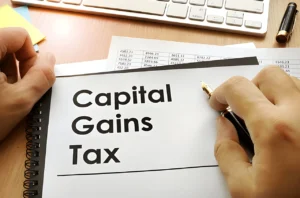



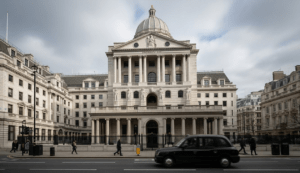
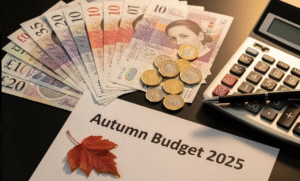

47 responses
Hi
I am not clear about capital gain tax, we bought a house in 2003, lived there for 14 year and then moved to another house due to work, 2 year ago we bought another house but were not able to sell the old house so rented it out
We are planning to sell that house it has an outstanding mortgage of £275,000 and deposit commitment of £100,000.
Do we pay capital gain tax after deduction above as well as estate agent fees, solicitors fees and any update we did since we bought it ?
Thanks
Imran
Thank you for your comments. In respect of capital gains tax calculation, you will be able to claim private residence relief for the period of ownership which will significantly reduce the capital gains and with the other expenses and the annual exemption that could be brought down further.
I would suggest, to contact us on hello@legendfinancial.co.uk, with your availability to speak with one of our tax advisors and get further assistance with this.
Many thanks,
Hi,
My ex husband purchased a house in 2002 for £240,000.
We married in 2004 and I moved out of marital home in November 2017. My ex husband still lives there. The Decree Absolute granted in January 2019. I wanted to transfer the FMH to my sole name. The property values at £554,000.
How much I had to pay capital gain tax? Can I use PPR?
Regards Rimma.
Hello Rimma,
Thank you for your comments here.
Based on this brief note, we would like to know further about the legal ownership in the property from 2004 onwards, without this It is uncertain whether PPR could be claimed. Also, there are separation conditions that could after the capital gains tax.
This appears to be slightly complex, but we can discuss this further and help you get the optimal outcome on this matter. Please drop us an email on hello@legendfinancial.co.uk with your contact details and suitable time, we can arrange a short call with one of our tax advisors to understand the nature of the case and advice further.
Hi,
Nice article however I have a query on CGT liability in the following circumstance
– Parents gifted/signed over their property to 2 sons in April 2014 with an ongoing reservation of benefits clause until their death.
– December 2022, both parents have passed and the 2 sons are now in full control of the property.
– The property value has appreciated by £60k since 2014.
Is the CGT liability taken as the gain since April 2014
or
Does the ongoing reservation of benefits clause only invoke chargeable gain from the date of parents death to the date of sale. In other words the change in value between December 2022 and the eventual sale date ?
Many Thanks
Hi Ricky, Thank you for your comment on our article.
Your query is of a complex nature due to Gift with Reservation and may have implications in relation to Inheritance Tax. We would prefer if you can drop us an email on hello@legendfinancial.co.uk and one our specialist tax advisor will be able in touch to discuss this through.
Many thanks,
Fahad
Hi, we are buying a new house as our main residence. We need to make alterations to it preferably before we move in. Then we intend to sell this house ( our main and only residence for the last 7 years). We will obviously be making some amount of profit on it. Do we have to pay capital gains on the sale of this house as we hope to be able to sell quickly after our move. Thank you.
Hi Del, Thank you for contacting us at Legend Financial.
As per your comments, the house that you will purchase as your main residence and if sold in sometime after having it as your only main residence, will not attract any capital gains tax.
If you would like to discuss your matter in detail, and need assistance in declaring the sale of property, kindly drop us an email on hello@legendfinancial.co.uk with your contact details and availability in order for our tax advisor to be in touch with yourself.
Many thanks,
Saiqa
Hi! I will be inheriting 20% of my mothers property. If this is sold to developers how are the relevant taxes applied? Is it inheritance tax and capital gains? (My mother has my deceased fathers allowance). All beneficiaries are uk tax payers.
Thanks
Hi Sally,
Thank you for contacting us.
There are two aspects of your enquiry, first on the inheritance point – it has to be made more clearer to us, but in general if it’s passed on as inheritance, surely inheritance taxes might have been sorted and if not then there are various rules.
Secondly, on the sale of the property – yes the capital gains tax implications would apply. This again is something to be covered in detailed, to see how tax efficiently it can be dealt with.
If you are looking for a detailed advice, I would suggest to drop us an email on hello@legendfinancial.co.uk with your contact details and suitable times – and one of our advisors will be in touch.
Many thanks,
Fahad
Hi
My wife bought a property for £190,000 in 2015. We have never lived in the property (rented out) & are thinking of selling the approximate value now is £290,000.
We have spent around £10,000 in improvements.
My wife current earnings is £40,000 per year.
How much roughly should we expect to paying CGT?
Thanks James
Dear James, thank you for your query in respect of your wife’s capital gains tax.
With the scenario, presented, you could be looking to pay CGT on a capital gain of around £90,000.
There is an annual exemption available of £12,300 but from 6 April 2023 it will drop down to £6,000, so considering these, you are looking for capital gains tax between £20,000 and £22,500 circa.
Should you wish to discuss this further, please drop us an email on hello@legendfinancial.co.uk and one of our tax advisors will be in touch with you.
Many thanks,
Saiqa
Hello,
I have recently inherited a property & I don’t want to get stung with capital gains tax, while at the same time my family needs a larger property so to mitigate this could I mortgage the inherited property to purchase a larger family home & rent out the inherited property to pay for the mortgage?
Kind regards
Mark
Hi Mark, Based on your comment we feel that you are unaware of the capital gains tax that could be payable in the event of its disposal. It might be an idea to have it discussed with us, so that we can clear your doubts surrounding it. You you can drop an email at hello@legendfinancial.co.uk with your contact details.
The approach you have suggested, is workable as the property is not sold, so there would not be any capital gains tax implications as such.
Many thanks,
Fahad
Hi,
My husband and I are both UK residents. We bought a small agricultural house in Italy 20 years ago and over the years have enlarged and improved the property and this includes a large pool. We started renting the property commercially about 12 years ago for about 10-15 weeks a year. Before that we used the property for friends and family. We have always used the house ourselves for 3-4 weeks annually and since retirement 3 years ago we have scaled down the renting availability and have used it for ourselves for 2-3 months of the year. We now wish to sell the property and this summer at the end of August we stopped advertising the property to rent. It is currently for sale. We don’t currently own a house in the UK so will any of these factors make a difference in the CGT bill. We anticipate a substantial CGT bill of around after our allowances of something like £30,000 due to the fact that the property prices were very low in that area 20 years ago. We didn’t develop the property for gain as we originally intended to retire to Italy but have since changed our mind.
Thank you
Dear Andrea,
We appreciate you for going through our article here, and for your comments.
Thank you for a brief explanation with respect to your overseas property. There are certain items that can help in the reduction of capital gains tax bill as per your notes, however in terms of obtaining a relief on the property against the gains for prime residence this is arguable.
Since the property is situated abroad, there will be foreign costs and taxes will be involved, which can also help in reduction of the liability.
I suggest a quick call with one of our advisors can help further understanding your position better. Should you wish to discuss this further, we would appreciate if you can forward your contact details and availability on hello@legendfinancial.co.uk and one of us will be in touch.
Many thanks,
Saiqa
Hi
I am trying to clarify whether a transfer of property back to its original owner would incur CGT. It was transferred to my sister in law around 10 years ago in order for her to get a loan to pay off our debts. These are all resolved and we would like the name on the deeds to be transferred back to us.
No capital gain has occurred to either party it was just the only way that money could be obtained to pay off the debt.
Dear Alan,
Thank you for your comments here.
It appears that at the time of previous transfer a chargeable event took place. We would need to understand beneficial interest at the time, and also now to establish if a chargeable event would take place.
I would suggest, if you would like to discuss it further – it would be advisable to be in touch by email on hello@legendfinancial.co.uk with your contact details and your availability.
Many thanks,
Darren
Hi Fahad,
Have sent you an email as well but thought will fill in this form just in case my Yahoo mail has ended up in spam.
Looking forward to speaking with you.
regards,
Ganesh
Hi
My wife bought her first flat in 1991 for 43k we met and married in 2004. This was her primary residence until 2002.
It has been let out since then. It is in her name only. About 6k spent over the years maintaining it.
It is now for sale for 299k. Please could you explain possible CGT implications?
Regards.
Dear John,
Thank you for contacting us.
Based on the figures you have provided, roughly we can estimate capital gains tax to be around £24,000. We can have a detailed discussion and see what other factors are available that can help it reduce further.
If you wish to discuss further, kindly drop us an email on hello@legendfinancial.co.uk and provide your contact details with a suitable time/date and we can arrange this call.
Kind regards,
Saiqa
Hi Fahad
Can you please gave me a rough estimate on CGT property mortgage on it bought 1998 at 53k but was then remortgage now owing 160k value 300k was first home then move out rental from 2005 to present
Dear Annie,
Many thanks for contacting us.
From your question, I note there is a gain of 247k on property owned for around 24 years and after applying private residence relief (assuming no other buying/selling costs are involved) – we are looking at a taxable gain of 165k – part of which will be taxed at 18% only if basic rate band is available and the remainder at 28%.
If you’d like this to discussed through in detail, please drop us an email on hello@legendfinancial.co.uk and one of our advisers will liaise with you.
Thank you.
Fahad
Hello
I bought my house 13 years ago and lived in it for 3 years. Due to ill health I then moved back to my parents house (rent free as I wasn’t working) and I rented out my house for 9 years. For the last year I have stopped renting it out. As it is the only home I own, will I still have to pay CGT on it?
Thank you.
Dear Kelly,
Thank you for contacting us at Legend Financial.
The Property has been owned for 13 years, and only 3 of those years is where the property can be classed as your prime residence, and the remainder was let out. In this case, the gains on the property relating to three years would be relieved under PRR and the remainder would be taxed. But all of this can be discussed in detail to identify other factors that can lead to a reduction in capital gains tax.
Should you wish to speak further, please drop us an email on hello@legendfinancial.co.uk and one of our advisors will be in touch with you. It would be appreciated if you can, in the same email, share your contact number and a suitable time/date for it.
Many thanks
Saiqa
Hi Fahad,
Thank you for your very enlightening responses – they are much appreciated. I have a situation something similar to others described above, but also slightly unique.
Purchased property for £715k in May 2017 in joint ownership with my wife and I
Stayed in the property as main residence till Nov-18
Spent close to £70k on renovations (new bathroom, floors, wardrobes, painting, etc) during this period
I lost my job and moved overseas for a period of ~3 years from Nov-18 onwards
Property was rented out from May-19 to Apr-22 (3 yrs)
We have just sold the property as of May-22 for £790k
Realise there are a number of factors to consider here including cost of acquisition and cost of disposal, the renovations and perhaps most importantly, the fact that the house was leased 3 of the 5 years we owned it.
I was not a UK tax resident for the 3 years I was overseas, but for the other 2 years I was a UK tax resident.
Can you please help?
Dear Harry,
Many thanks for your kind words.
Yes, we can certainly help. I would like to know if you had managed to report your capital gains to HM Revenue & Customs as of May 2022, as you would be aware there is a reporting deadline of 60 days from date of completion.
I have gone through your facts and figures and have also worked up on a quick illustration to see the taxable gains.
I would feel, it would be best we can organise a quick call to see what stages you are at and then arrange a meeting to have it settled appropriately.
Please drop us your contact details on hello@legendfinancial.co.uk and a suitable time, and one of our tax advisors will be in touch with you soon.
Kind regards,
Fahad
I own some land surrounding my farm that is used for business use. We are in the process of gaining planning for houses on the land, we will retain the house and would like some advise on how to minimize my tax burden. We have kept back 1 acre of land to develop ourselves at a later date and I do own another Limited company.
Hi Matthew, thanks for your comments. It is unclear as to what kind of tax burden you are looking to minimise.
We would recommend for you to speak with one of our advisors, and for this if you can drop us an email with your contact information at hello@legendfinancial.co.uk then we can assist you further.
Thank you
Fahad
Hi,
I am considering selling my shared UK property, that I jointly own with my ex wife, as we both now reside in New Zealand.
The property in question is currently in a rental agreement and has been since we emigrated to New Zealand, back in September 2004. It was originally purchased in 1993 for 136,000 GBp and consisted of an old 4 bedroomed house and surrounding land, totaling 12.5 acres. It was renovated during the first 5 years of our occupancy.
During the 18 years of rental, it has accommodated numerous tenants, who have shown little or no respect to the property. This has resulted in a significant fall in the condition of the property. This has prompted us to consider selling the property and cut our losses, as we have now both reached retirement age.
However, the current rate of Capital Gains Tax have been anything but encouraging
Regards
Neal
Dear Neal,
Many thanks for contacting us at Legend Financial.
Thank you for the brief scenario of the position at present. Since the property is owned between two individuals – the gains before the taxes are calculated would be split between the two and since both are not resident in the UK – the 18% capital gains tax rate would be applicable up to £50,000 of your gain and there after at 28%. Other factors, like renovation costs, buying costs and selling costs are some items – that can help reduce the taxes further.
We feel that in your circumstance, if we dwell down into the costs deeply, we can work out what the gain might look like for taxes. Should you wish to discuss this further we can arrange a quick call to see if there are any other matters we can cover. Should you wish to do this, please kindly email your contact details on hello@legendfinancial.co.uk and one of our advisors will be in touch with you.
Thank you
Fahad
Hello
I have had a 2nd property which I purchased 12 years ago. It has been on rent since then.
If I were to gift my current property to my children and move into the 2nd property.
How long would I have to live there for it to be considered my main property and thus avoid CGT?
Dear Tariq,
Thank you for contacting us in respect of your query.
The 2nd property will be considered main residence once occupied with the intention of living there permanently. With respect to the point of avoiding CGT on this 2nd property – the first 12 years would not have any relief on them as they were let out – so however the time it is occupied from the move onwards – it will be prorated for the period unoccupied and thus any gain for that period would be taxable.
I trust the above is clear – but if you wish to discuss this further we can arrange a quick call to see if there are any other matters we can cover. Should you wish to do this, please kindly email your contact details on hello@legendfinancial.co.uk and one of our advisors will be in touch with you.
Many thanks
Fahad
Hi
I am UK resident disposing a land gifted to me 6 years ago in Poland by my father.
I am aware I need to pay CGT but how do I calculate the gain? Do I use market value of the land from 2016? What documents do I need to have ready for HMRC? Will The sales transactions documents be needed or just a proof of money in my bank account be sufficient?
The gift transaction document had massively understated value written into it, would that be a problem, making the gain higher than it actually is?
Thank you
Hi Andrew, thank you for your query.
The gain will be calculated based on your purchase and selling price, also taking into account other related costs. You would need to keep the transaction documents as an evidence incase enquired by HM Revenue & Customs.
It would be best to have the purchase document certified again by an independent surveyor to confirm the fair value at the time of gift.
Should you wish to speak further. we can arrange a call, and if you can kindly share your contact details and a suitable time/date on hello@legendfinancial.co.uk ; one of our tax advisors will be in touch with you.
Thank you
Fahad
My mother has just started renting an assisted living flat after the death of my father. if I rent her house out to help pay for her rent and care fees, how would the CGT be worked out? is the starting value of the property for CGT from when my parents purchased the house 30 years ago or the value of the house now? Would she still get the 36 months relief as it was her permanent home for the past 30 years? Thank you
Hi Erica,
Thank you for your comments on our article here.
In respect of the CGT, if it was a main residence for all the period of the past 30 years, then there is a potential to claim private residence relief against the gain, however it will need to be assessed thoroughly.
I would ask, if you could kindly drop us an email on hello@legendfinancial.co.uk with your contact details and we will get one of our advisors to contact you back to discuss this further.
Many thanks
Fahad
Hi
I have a land which is given to me by my grandparents way before i come to uk.Now i want to sell that land and transfer the money to my uk account so i can put this money as a deposit for my first house purchase.
What i would you like to know is , do i have to pay CGT for this money?
Best regards
Hi Jem,
Thank you for your question here.
Since being a UK resident, you’ll be liable to capital gains tax on the disposal of your worldwide assets.
However we can discuss this further to see if there are any other factors that can help reduce it.
We can arrange to discuss this further, if you can kindly leave your contact details and a suitable time/date on hello@legendfinancial.co.uk ; one of our tax advisors will be in touch with you.
Thank you
Fahad
My husband and I had a principle residence for 35 years that we sold in April 2022. We purchased a second home for a elderly relative to live in in 2004 who died in 2007. We have kept the second property for 22 years, and used it as a second home, purchased furniture etc, extended and renovated it. We moved out of our principle residence in June 2021 and moved into the second home whilst waiting for the first property to be smartened up and sold. So we have lived in the second home for 12 months and now wish to sell. Can you advise us, do we have to pay CGT? Thank you
Hi Dawn. Thank you for contacting us and providing us on a brief scenario.
We would need to further understand about second home use between 2007 and 2021 – before working out a conclusion on the capital gains taxes.
We can arrange to speak with you further in a call or over emails. If you could kindly email your contact details and a suitable time/date for this on hello@legendfinancial.co.uk ; one of our tax advisors will be in touch with you.
Thank you
Junaid
I bought a London based one bedroom flat 10 years ago for £172k, i invested around £20k initially on complete redo. I moved to US (where i am now a permanent resident) 3 years after that and it has been rented out for the following 7 years. I am about to sell it for cca £300k.
What is my best strategy for avoiding CGT – I hear I may be liable for CGT on both ends (in UK and in US!!). I have an 8 year old son that has a trust with his biological US father. Can I put my property in his trust? I am married to another US citizen – and our properties before marriage are not considered joint property, but is there a tax beneficial way of involving him in the London flat ownership in any way?
What is my best strategy?
Many thanks in advance
Sandra
Hi Sandra, thank you for contacting us.
In your case there are a few matters, firstly CGT calculation surrounding UK and then what options are available under double tax treaty in US, where you’re currently resident.
Secondly, putting property in trust to your Son – there are certain factors to look at before thinking it’s a better option.
Thirdly, having your Spouse as a joint owner in the property is always a good move, but you’d need to sure on how it can be managed more tax efficiently.
We can have a short call at somepoint to cover this up. If you’d be kind enough to email us your details on hello@legendfinancial.co.uk ; one of our tax advisors will be in touch with you and have this discussed further.
Thank you
Junaid
Hi,
My partner bought a buy to sell property with his ex-wife in 2009.
They divorced and he moved into the property in 2019.
He bought if for £220,000, spent around £25,000 doing it up and has just sold it for £475,000.
He has used the excess to buy a house with me.
As he has lived in the property for the past 3 years, does he still need to pay CGT??
Thank you
Dear Claire,
Thank you for approaching us for your query, in the comments section of this article.
Based on your scenario, it appears that from 2009 to 2019 – the property might not have been left empty, if I am correct in assuming this, and probably let out – if this is the case then yes there will be Capital Gains Tax due on this period of ownership however it will have to be split between your partner and the ex-wife.
There are other factors to this too – the time of divorce and how the asset was passed on – in order to establish how the capital gains taxes are split.
If you would like to have this covered in detail, please leave us your contact details on hello@legendfinancial.co.uk and one of our tax advisors will be in touch with you soon.
Regards,
Junaid
Hi
I bought a 2 bed terrace house 25 years ago for 25k
I spent 10k to renovate it.
After 5 years I spent 15k to renovate
After another 8 years spent 7k
After another 10 tears spent 20k
Total paid 87k.
Now I am planning to sell it for 125k.
But have a mortgage of 85k.
On how much do I have to pay capital gains tax ?
Hello Khalida,
Sum of your total spend including adds up to be £77k including the purchase.
If total cost is £87,000, there will be a gain of £38,000 (sale £125k – £87k cost). Assuming one owner and has never occupied as principle private residence, this gains of £38,000 taxable in the year of sale. Certainly, any selling cost would further reduce the gains.
If total cost is £77,000, there will be a gain of £48,000 (sale £125k – £77k cost). Assuming one owner and has never occupied as principle private residence, this gains of £48,000 taxable in the year of sale. Certainly, any selling cost would further reduce the gains.
The gains will be subject to relevant marginal rate of individual. This mean, we need to see how much basic rate band is available, which will be taxed at 18% residential gains and 28% for higher rate taxpayer.
For more detailed discussion please drop me email on hello@legendfinancial.co.uk, we can book time and have better understanding.
Thanks
Fahad